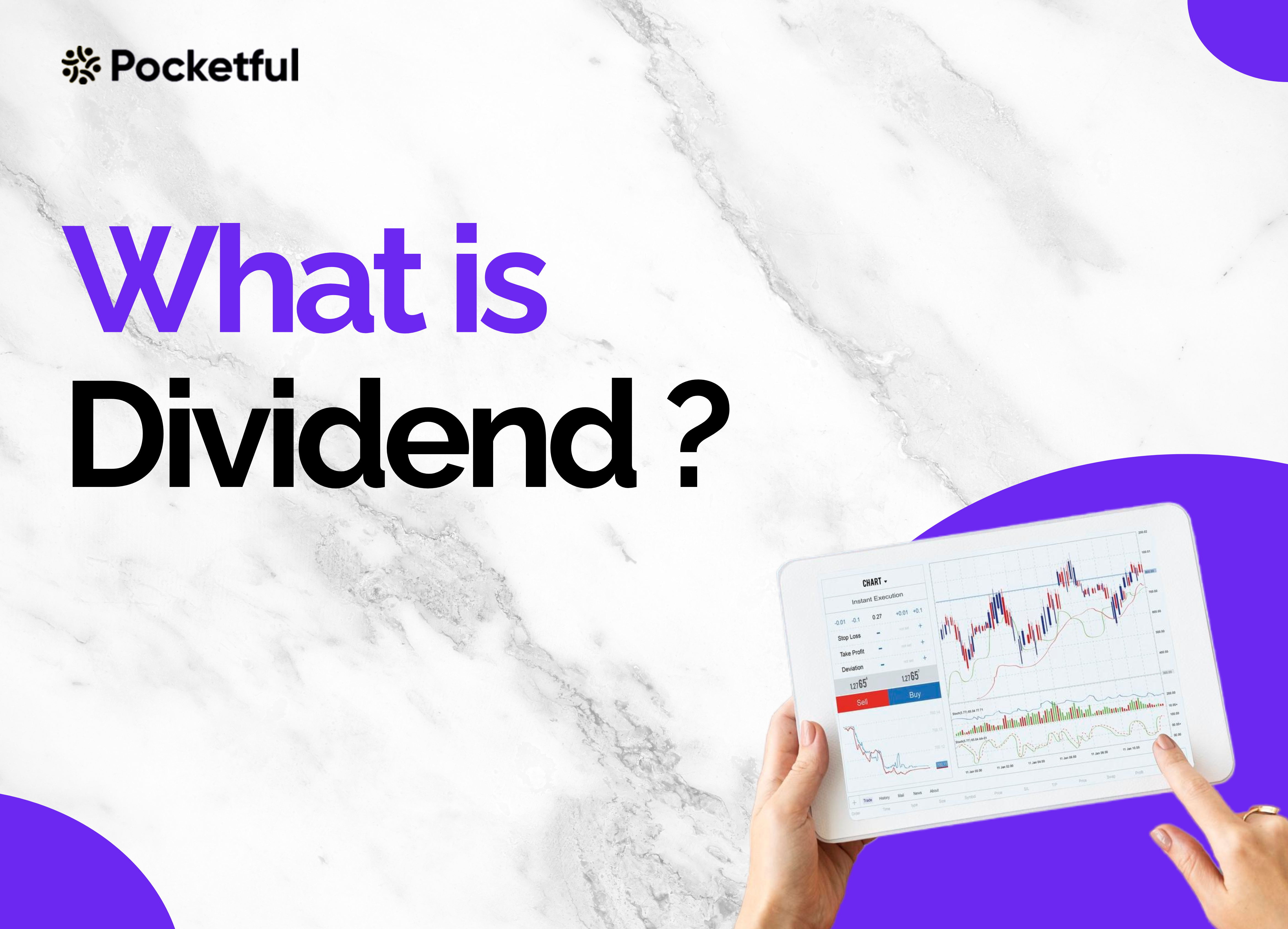| Type | Description | Contributor | Date |
|---|---|---|---|
| Post created | Pocketful Team | Jun-06-24 |
Read Next
- Rakesh Jhunjhunwala Portfolio 2025: Top Holdings & Strategy
- BankBeES vs Bank Nifty – Key Differences
- Current Ratio vs Quick Ratio Key Differences
- Best REIT Stocks in India 2025
- Best Data Center Stocks in India 2025
- Best Rare Earth Stocks in India
- Top 10 investment banks in India
- What Is iNAV in ETFs?
- Best Investment Options in India 2025
- Best Energy ETFs in India 2025
- Radhakishan Damani Portfolio 2025: Stocks & Strategy Insights
- Best SEBI Registered Brokers in India
- Best Air Purifier Stocks in India
- Best Space Sector Stocks in India
- Gold Rate Prediction for Next 5 Years in India (2026–2030)
- Difference Between Equity Share and Preference Share
- Vijay Kedia Portfolio 2025: Latest Holdings, Strategy & Analysis
- Raj Kumar Lohia Portfolio 2025: Holdings, Strategy & Analysis
- How to Earn Passive Income Through Dividend-Paying Stocks in India
- Top 10 Richest Investors in the World 2025 – Net Worth, Key Investments & Strategies
- Blog
- what is dividend in stock market
What is a Dividend? Meaning, Key Dates, and Types Explained

We know that one should invest a portion of their income in the securities market. But did you know that there’s a way to earn money while being invested?
Today, we’re going to walk you through a unique way to earn passively. We’ll cover what a dividend is, the most important dates you’ll need to know as an investor and the types of dividends that a company can pay.
Meaning Of Dividend
In simple terms, a dividend is a payment by a corporation to its shareholders, which is commonly realized through the company’s profits. When a company earns a profit, it can choose to either reinvest the money back into the business (retained earnings) or distribute a portion of it to shareholders in the form of a dividend. Dividends are a way for companies to reward shareholders for their investment and provide a steady stream of income.
Therefore, dividends are seen as a sign of a company’s financial health and stability. Companies that consistently pay dividends, especially those that increase their dividend payout ratios over time, are often viewed as financially sound and stable. This can make dividend-paying stocks particularly attractive to income-focused investors, such as retirees, who rely on the steady income that dividends provide.

Dividend Key Dates
To fully understand the dividend process, it’s important to know the key dates involved:
Declaration Date
It is the date when the board of directors of the company declares the dividend to be paid out. It usually states how much money is to be given out and dates set for the record date and payment date. The declaration date is the first signal to investors that a dividend will be paid.
Ex-Dividend Date
This is the cutoff date established by the stock exchange. If you purchase a stock on or after this date, you will not be eligible to receive the declared dividend. For one to qualify to be paid the dividend, the person should own the share before the ex-dividend date.
Record Date
This is the date when the company reviews its records to determine which shareholders are eligible to receive the dividend. The record date is usually one business day after the ex-dividend date. It’s the official date on which you must be on the company’s books as a shareholder to receive the dividend.
Payment Date
This is the date when the dividend is actually paid out to shareholders. In other words, it is the date when money is released and transferred to shareholders in their brokerage accounts.

Read Also: What is Dividend Yield?
Example of Dividends
Let’s say Company XYZ declares a dividend on January 1st of $2 per share:
– Declaration Date: January 1st, when the company announces it will pay a dividend of $2 per share.
– Ex-Dividend Date: January 15th. To be eligible for the dividend, you need to purchase the stock by January 14th.
– Record Date: January 16th, when the company checks its records to see who is eligible.
– Payment Date: January 31st, when eligible shareholders receive their dividends.
If you own 100 shares, you will receive a total of $200 in dividends (100 shares * $2 per share) on January 31st.
Calculate Dividend Yield – Dividend Yield Calculator
Types of Dividends
Companies can issue several types of dividends, each with its own characteristics and implications for shareholders:
Cash Dividends
This is the most common type and pays the holder in cash, either to their brokerage account or with a physical check. This is the form of the dividend that most people think about and refer to when they use the term dividend.

Stock Dividends
Instead of cash, shareholders receive additional shares of the company’s stock. In other words, this exercise allows more share ownership without giving out cash. Stock dividends are popular because they allow the holder’s interest in the business to widen without the holder spending money to earn new share rights. Thus, the company can safeguard its cash while satisfying the shareholders.
Property Dividends
These dividends are paid out in the form of assets other than cash, such as products or physical assets owned by the company. Property dividends are rare and can include items like real estate, inventory, or other physical assets.
Special Dividends
These are one-time payments that a company issues, usually when it has accumulated substantial profits or has excess cash reserves. Special dividends are not recurring and are often larger than regular dividends, reflecting a particularly strong performance period for the company.
Preferred Dividends
These dividends are paid to holders of preferred stock and are typically fixed amounts paid on a regular schedule, often quarterly. Preferred dividends have priority over common dividends, meaning they are paid out first. Thus making preferred shares a more predictable income source.
Read Also: How to invest in dividend stocks?
How can I track Dividends?
Generally, listed companies publish all the corporate announcements at stock exchanges first, i.e., NSE and BSE in India. However, it will be cumbersome for you to monitor updates from each company individually.
To simplify this process, we’ve created a dedicated corporate action page where you can effortlessly track all the latest corporate announcements, including but not limited to dividends, rights, splits, and bonus issues.
You can access the corporate actions page to get the detailed list.
But that’s not all. In addition to our corporate actions page, we recently launched our new WhatsApp service. Now, you can effortlessly stay informed about all corporate actions, including dividends, bonuses, splits, and more, delivered straight to your phone every morning by 9 A.M. for just INR 11!
Sign up now and never miss any corporate announcement.
Conclusion
Understanding dividends and their associated dates is essential for any investor seeking to benefit from this form of income. By keeping track of declarations, ex-dividends, records, and payment dates, investors can ensure they are positioned to receive dividends.
Hence, whether you’re an amateur investor or a seasoned pro, dividends can play a valuable role in building a growing portfolio. However, you must perform your analysis before investing in any stock.
Frequently Asked Questions (FAQs)
What are Dividends?
Dividends are the distribution of the company’s earnings to the shareholders.
Is it mandatory for companies to continue paying dividends?
No, a company can stop paying regular dividends if its financial situation does not allow it to part ways with cash. However, most companies continue paying dividends once they have started.
Why Are Dividends Important to Investors?
Dividends provide a regular income stream, which is particularly important for income-focused investors such as retirees. Dividends also act as a sign of a company’s financial health.
Would I receive a dividend if I purchased the share after the ex-dividend date?
No, the ex-dividend date determines who qualifies to receive the dividend. If you purchased the stock on or after the ex-dividend date, you will not be eligible for the declared dividend.
How are dividends taxed?
Dividends are not taxed upto INR 5000 in India. Any dividend income you receive beyond this limit will be taxed according to the applicable tax rates.
Disclaimer
The securities, funds, and strategies discussed in this blog are provided for informational purposes only. They do not represent endorsements or recommendations. Investors should conduct their own research and seek professional advice before making any investment decisions.
Article History
Table of Contents
Toggle